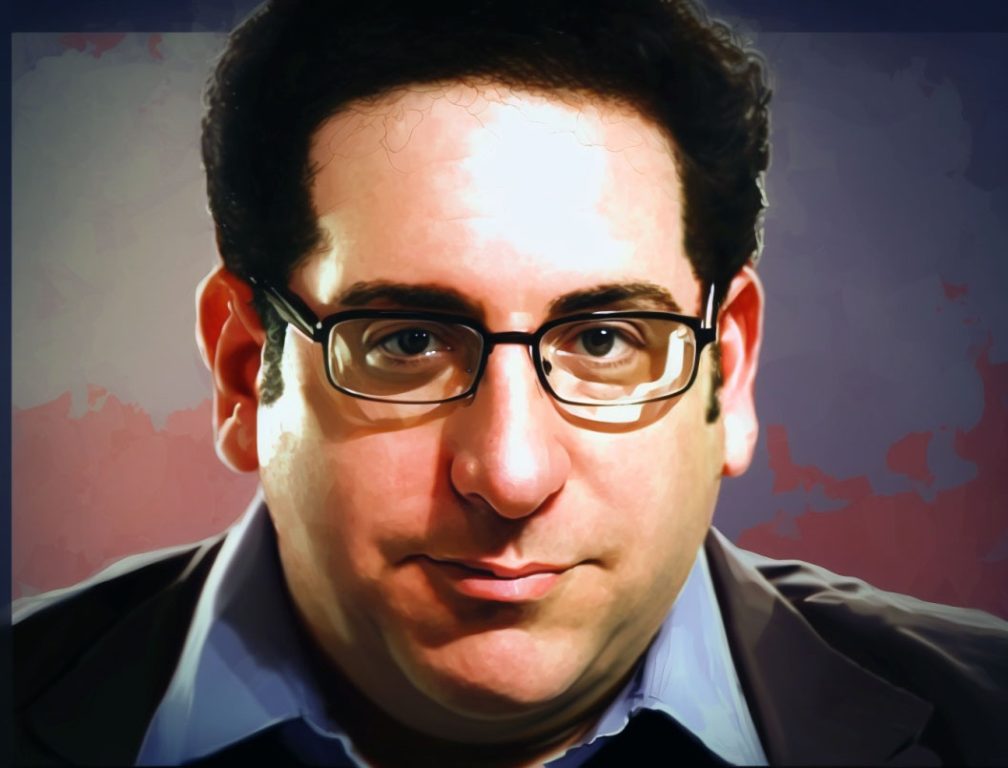Ralph Merkle is a celebrated computer scientist who has made groundbreaking contributions to the field of cryptography. Born on February 2, 1952, he has achieved numerous milestones in his illustrious career, including co-inventing public-key cryptography, a secure method of communication that allows multiple individuals to share a public key for encryption and a private key for decryption.
Back in 1974, Merkle came up with a revolutionary idea known as Merkle’s Puzzles. This protocol system helped pave the way for modern cryptography. Additionally, he’s credited with inventing cryptographic hashing, a globally used method for secure transactions and data integrity verification.

Stay One Step Ahead of Cyber Threats
Beyond his foundational work in cryptography, Merkle has also worked extensively in the field of nanotechnology, and he is considered a visionary of molecular nanotechnology and cryonics. Presently, he is a Senior Research Fellow at the Future of Humanity Institute of Oxford University. His work continues to influence today’s digital communication, online security, and data encryption.
1. Notable Contributions to Cryptography
Ralph Merkle made significant strides in shaping the landscape of cryptography. His initial breakthrough came with the concept of Merkle’s Puzzles. This concept is essentially a system of protocols for securely establishing a shared secret over an unprotected connection, and it served as an early contribution to the development of public key cryptography.
The cornerstone of his contribution, though, remains in his co-invention of public key cryptography — a revolutionary method of secure digital communication. Unlike traditional methods of encryption that use a single key, public key cryptography uses a pair of keys. One key is kept secret (private key), and the other one is made public, enabling secure data transmission over insecure channels.
Apart from his other accomplishments, Ralph Merkle is also known for inventing cryptographic hashing. This process plays a vital role in ensuring secure data handling today. It involves taking an input and producing a fixed-size string of bytes that appears random and unique for each distinct input. Cryptographic hashing is widely used in various applications worldwide, such as online transactions and data integrity checks. Merkle’s innovative contributions to this field have rightfully earned him a place as one of the leading figures in cryptography.
2. Work in Nanotechnology and Cryonics
Beyond cryptography, Ralph Merkle’s scientific interests and contributions range into the somewhat less-explored territories of nanotechnology and cryonics. Merkle is recognized as one of the visionaries of molecular nanotechnology. His works in this field promise potential revolutions in areas like manufacturing, medicine, computing, and environmental protection.
Molecular nanotechnology deals with the manipulation of structures on the scale of molecules. It aims to create precise, microscopic devices and machines for a variety of applications. Merkle championed the idea of mechanosynthesis, which involves using mechanized methods to chemically synthesize most products, even potentially complex ones like computers or living organisms.
Merkle’s work in cryonics, the low-temperature preservation of humans and animals with hopes of future recovery, is also quite notable. He has written several papers on cryonics and molecular nanotechnology, and he’s a board member of the Alcor Life Extension Foundation, an organization dedicated to the preservation of life using these methods. His work in these fields is a testament to his boundary-pushing mindset and unwavering quest for scientific advancement.
3. Current Role and Influence
Today, Ralph Merkle serves as a Senior Research Fellow at the Future of Humanity Institute of Oxford University. In this role, he continues to contribute to groundbreaking research and provides expert insight into fields like artificial intelligence, biotechnology, nanotechnology, and other areas that, much like his own work, are on the frontiers of scientific understanding.
The cryptographic work done by Merkle serves as a crucial foundation for many digital systems worldwide. His concepts are the backbone of private-public key models, which play a critical role in secure communication channels, including military intelligence and financial services. Merkle’s contribution to cryptographic hashing is now universally used to maintain the integrity of digital data.
Merkle’s groundbreaking research and innovation have left an indelible mark on technology and cybersecurity that will continue to influence generations to come. His visionary approach to cryonics and nanotechnology will continue to shape conversations around life preservation and microscopic manufacturing. His ongoing endeavors further define his stature as one of the prominent thought leaders in the intersection of computer science, cryptography, and future technologies alike.
Conclusion
Ralph Merkle is a trailblazer whose influence spans across cryptography, nanotechnology, and cryonics. His work continues to revolutionize scientific fields, setting the tone for future innovations and securing his legacy as one of the pioneering figures in cryptography and nanotechnology.
Key Takeaways
- Ralph Merkle, a computer scientist and cryptographer, was instrumental in the advancement of public key cryptography and cryptographic hashing techniques.
- He is among the visionaries in the field of molecular nanotechnology and co-founded the concept of mechanosynthesis.
- His contribution to cryonics, specifically in the preservation of life, sets him apart as an innovative figure.
- Merkle currently engages in boundary-pushing research at the Future of Humanity Institute at Oxford University.
- The concepts and structures Merkle developed continue to define secure communication, online transactions, and data integrity checks worldwide.
Related Questions
1. What is cryptographic hashing and its role in digital security?
Cryptographic hashing is a process that creates a unique, fixed-size string of bytes for any given input. This characteristic makes it highly useful in digital security, where it’s essential to maintain data integrity and detect any interference or modifications.
2. What is the concept of public key cryptography?
Public key cryptography is a system of encryption that uses a pair of keys. One key is public and can be shared with anyone without compromising the data’s security, while the other is kept private. This approach enables secure data transmission over insecure channels.
3. How does molecular nanotechnology contribute to scientific advancement?
Molecular nanotechnology involves manipulating structures at a molecular level, aiming to develop microscopic devices and machines. This can revolutionize multiple sectors, including manufacturing, medicine, and computing, paving the way for major scientific advancements.
4. What is cryonics, and what is Merkle’s contribution to it?
Cryonics involves preserving humans and animals at low temperatures, with the hope of future restoration or revival. Ralph Merkle, a notable figure in this field, has penned several papers elucidating the scientific possibilities of cryonics and actively serves on the board of Alcor Life Extension Foundation.
5. What current roles does Ralph Merkle hold, and how is he influencing the world today?
Ralph Merkle serves as a Senior Research Fellow at the Future of Humanity Institute of Oxford University. His work continues to influence fields like artificial intelligence, biotechnology, and nanotechnology, while his foundational concepts in cryptography bolster today’s digital communication and data security.
"Amateurs hack systems, professionals hack people."
-- Bruce Schneier, a renown computer security professional






